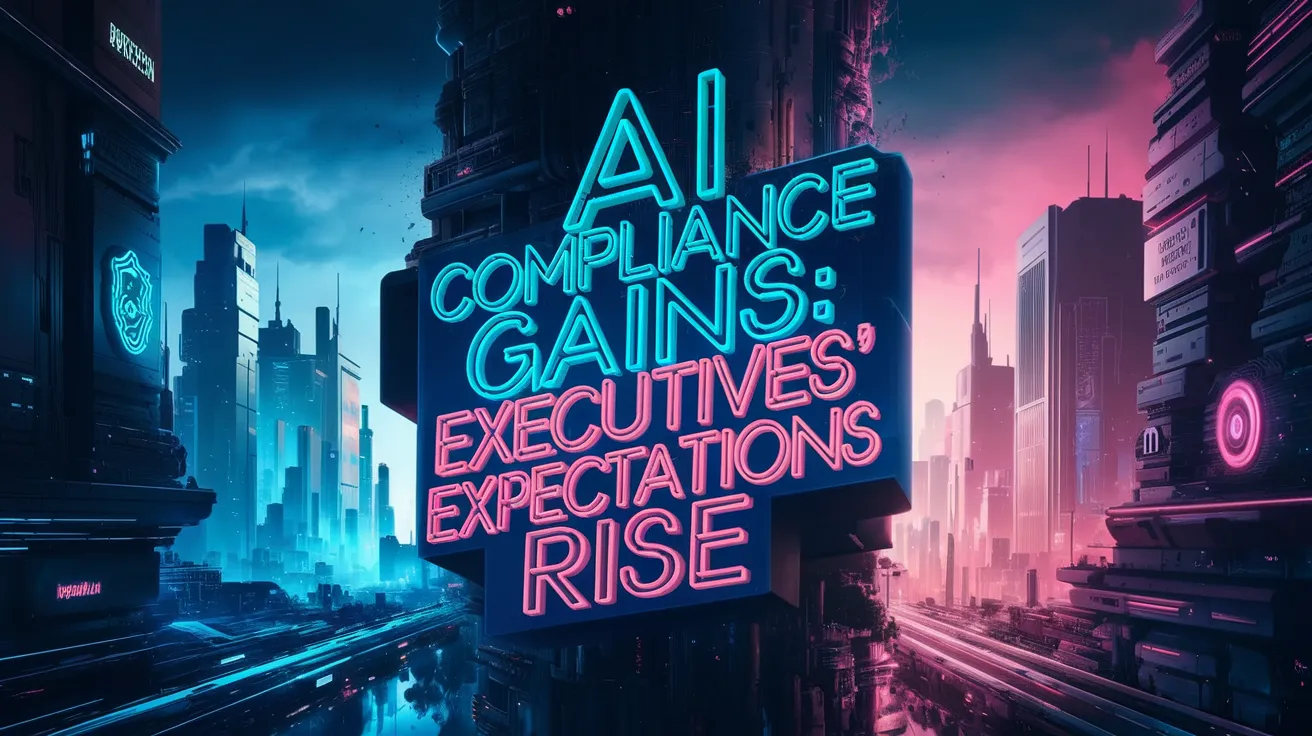AI Compliance Gains: Executives’ Expectations Rise

Recent trends indicate a significant shift in how executives perceive the potential of Artificial Intelligence (AI) in enhancing compliance and operational efficiency. According to a survey conducted in June 2025 among 60 chief product officers from companies with substantial revenue, 85% of these leaders now predict that AI will yield improvements in regulatory compliance reports. This is a significant increase from just 47% a year prior, showcasing a growing confidence in the capabilities of AI technology.
Generative AI’s Growing Influence
A year ago, many chief product officers approached generative AI with cautious curiosity. However, the sentiment has undergone a remarkable transformation, with nearly all executives now expressing that this technology is set to reshape their work processes. The survey reveals that an overwhelming 98% of leaders expect generative AI to streamline workflows, up from 70% in the previous year, highlighting the technology’s rapid adoption across various sectors.
Anticipated Improvements Across the Board
Beyond compliance, the enthusiasm for AI is evident in various areas of operation. The survey indicates that 93% of executives anticipate improvements in customer experience, while 95% expect enhanced decision-making capabilities. Security concerns, which were once predominant, have also eased, with 83% of respondents anticipating stronger data protection measures, despite warnings from experts about the risks associated with large language models.
The Divide in Industry Adoption
However, the optimism surrounding AI adoption is not ubiquitous. There exists a pronounced divide among industries, with some advancing swiftly while others remain hesitant. For instance, while 87% of product leaders are confident in AI’s ability to improve fraud detection—up from 62% in the prior year—many recognize that existing tools are still in developmental phases, with limited benchmarks to assure accuracy. This variance illustrates that while AI’s potential is widely acknowledged, the actual deployment and realization of its benefits are still proceeding at different paces across sectors.
The Future Landscape of AI in Compliance
As the technological landscape evolves, the future of generative AI may be less about universal adoption and more about defining the criteria for the success of its implementation. This calls for a purposeful embrace of AI across the board, reframing the conversation toward setting practical expectations and meaningful benchmarks for AI’s role in compliance and other critical business areas. The road ahead suggests that organizations must strategically navigate these divides to fully capitalize on AI’s transformative potential.